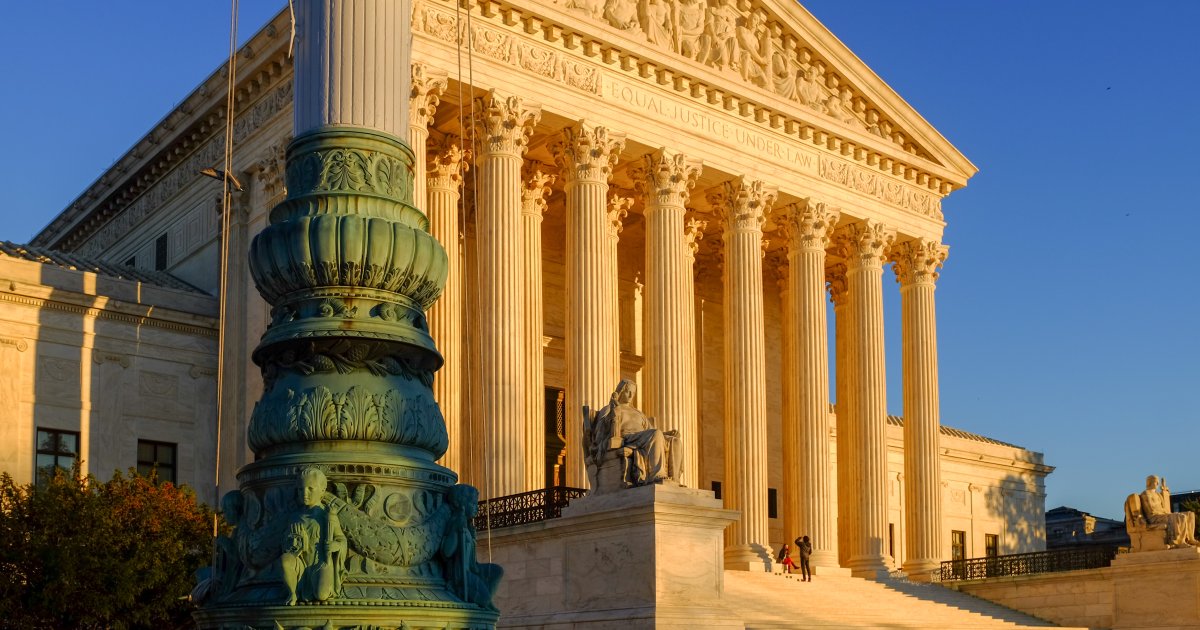The Supreme Court reaffirmed the bedrock First Amendment principle that a “government official cannot coerce a private party to punish or suppress disfavored speech on her behalf.”
Those words were written by Justice Sonia Sotomayor for a unanimous Court on Thursday. And they precisely describe the claims at issue in National Rifle Association v. Vullo.
The NRA argued that Maria Vullo, former superintendent of the New York State Department of Financial Services, didn’t like its gun-rights advocacy. So she used the power of her position to pressure insurance companies to sever ties with the group.
In 2018, for example, Vullo met with the insurance company Lloyd’s of London to discuss her views on gun control. Vullo’s office regulates insurance companies and can impose serious consequences on insurers that violate the rules, like imposing fines and rescinding their license to do business.
Vullo told Lloyd’s that the company’s underwriting of NRA-endorsed concealed-carry insurance policies could violate some of the agency’s rules. But she told Lloyd’s executives the company could “avoid liability” (that is, the government would look the other way) if the company canceled its NRA insurance plans and joined her agency’s “campaign against gun groups.”
In other words: Nice insurance company you have there. It’d be a shame if anything were to happen to it.
Governments increasingly have used informal tactics to avoid the strictures of constitutional oversight. But Thursday’s decision makes it harder for government officials to evade the First Amendment in this way.
Lloyd’s broke ties with the NRA a few months later.
And Lloyd’s wasn’t the only company Vullo leaned on to cut ties with the NRA. She sent warnings to all insurance companies and banks operating in New York. Her message was clear: New York doesn’t like pro-gun speech, so think twice about doing business with the NRA . . . or else.
The Court’s decision reaffirmed that such shameless strong-arming violates the First Amendment. If the NRA can prove its allegations when the case goes back for trial, Vullo violated the law.
FIRE Chief Counsel Bob Corn-Revere put it best: “The coercive tactics used by New York officials were a naked attempt to evade the Constitution.”
That’s exactly right — and exactly why the ruling was so necessary.
As Bob told reporters, the unanimous decision “sends a clear message that the government cannot use its bully pulpit to censor speech it doesn’t like without violating the First Amendment. The decision is a major victory for free expression and the rule of law.”
It sure is. That’s why FIRE filed two friend-of-the-court briefs with the Supreme Court to help secure this win. Last April, we asked the Court to hear the case. And this January, we urged it to reach this conclusion.
The Vullo decision reaffirms and breathes new life into the Court’s 1963 ruling in Bantam Books, Inc. v. Sullivan. In that case, the Court struck down Rhode Island’s use of a Commission to Encourage Morality in Youth to “advise” bookstores on what books to avoid because they might contain “obscene, indecent or impure language, or manifestly tend to the corruption of youth.” The Court held that such informal pressure tactics violate the First Amendment even when the government does not directly use the law to suppress speech.
The unanimous Court applied the same logic in Vullo and held that a government entity’s “threat of invoking legal sanctions and other means of coercion” against a third party “to achieve the suppression” of disfavored speech violates the First Amendment. As FIRE observed in its amicus brief, governments increasingly have used informal tactics to avoid the strictures of constitutional oversight. But Thursday’s decision makes it harder for government officials to evade the First Amendment in this way.
This doesn’t mean that government officials lack the ability to criticize speech they think is harmful, whether the message comes from the NRA or anyone else. As Justice Sotomayor wrote, a government official “can share her views freely and criticize particular beliefs, and she can do so forcefully in the hopes of persuading others to follow her lead.” That official “can rely on the merits and force of her ideas, the strength of her convictions, and her ability to inspire others.”
But what she cannot do “is use the power of the State to punish or suppress disfavored expression.” Bottom line, “a government official cannot do indirectly what she is barred from doing directly.”
FIRE congratulates the NRA and the ACLU attorneys who represented it on this important victory. And we thank the First Amendment Lawyers Association, the National Coalition Against Censorship, and the Rutherford Institute for joining our brief earlier this year.
We’ve said it before, but it’s worth repeating: FIRE isn’t pro-gun or anti-gun. We’re pro-free speech.

